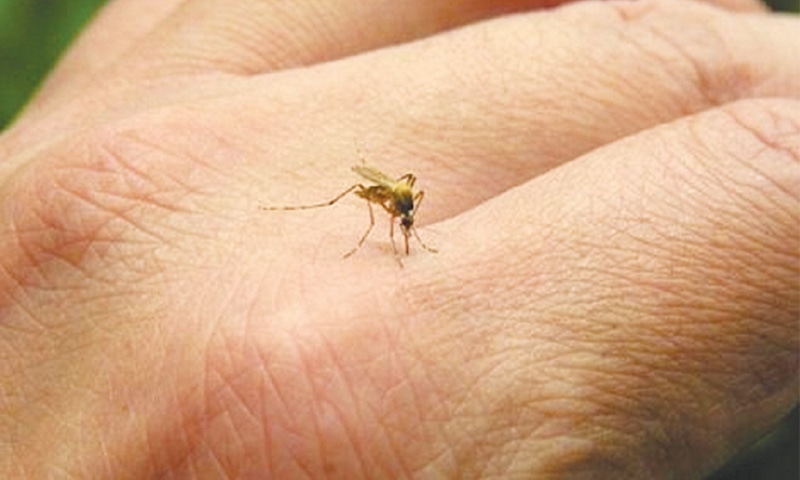On Feb 1, 2016, the World Health Organisation (WHO) announced that the recent cluster of neurological disorders and neonatal malformations reported in Latin America and the Caribbean constituted a public health emergency of international concern. This comes after the International Health Regulation Emergency Committee agreed that a causal link between this cluster and Zika virus disease is strongly suspected. It constitutes an “extraordinary event” and a public health threat to other parts of the world.
According to WHO, a causal relationship between the Zika virus infection and birth malformations and neurological syndromes has not yet been established, but is strongly suspected.
Zika is an emerging mosquito-borne virus that was first identified in Uganda in 1947 in monkeys. In human beings, it was identified in 1952 in Uganda and the United Republic of Tanzania.
Zika is transmitted to people through the bite of an infected mosquito from the Aedes genus, principally Aedes aegypti. This is the same mosquito that transmits dengue, chikungunya and yellow fever. This mosquito is found in many countries of the world, including Pakistan. All mosquitoes thrive in humidity, and Aedes aegypti is no exception. Rain is perfect for them, as after every rainfall there is surge in the mosquito population, which thrive in clean water and sewage. Water ponds or puddles and accumulated water in tyres or containers inside or outside the houses, are perfect breeding grounds.
Presently, there is no threat in Pakistan but we need to be on full alert
In Recife, Brazil, the Zika outbreak began in 2015. Since then, thousands of babies have been born with a condition called microcephaly — a neonatal malformation in which the infant’s head is much smaller in size when compared with other babies of the same age and sex. It is caused by, among other factors, the mosquito-borne Zika virus. Babies with microcephaly can suffer from developmental disabilities, poor brain growth and can have a short life span. Currently, there is no specific treatment for this condition.
Zika virus disease is usually relatively mild and requires no specific treatment. People infected with Zika virus should get plenty of rest, drink enough fluids, and treat pain and fever with common medicines. If symptoms worsen, they should seek medical care and advice. There is currently no vaccine available.
Initially, it was thought that the Zika virus infection is limited to South America, where 23 countries have so far reported Zika cases. However, follow-up reports show that it can easily spread in many areas of the world, including South Asia, for the simple reason that Aedes aegypti, the mosquito responsible for Zika virus, is found in many countries of South Asia. Absence of population immunity and lack of vaccines in newly affected countries are further causes of deep concern.
The Zika infection has now been reported in Taiwan, Thailand, Cambodia, Malaysia, the Philippines, Indonesia, the US and New Zealand. Dr Margaret Chan director-general, WHO, has warned that countries such as India that have outbreaks of dengue, yellow fever, and chikungunya, all carried by the same mosquito vector that carries the Zika virus and need to be alert to cases. “The mosquito that spreads the Zika virus is ubiquitous in so many countries that it’s incumbent on us to work with these countries,” she said.
Accordingly, Pakistan must be on full alert, despite a statement, jointly issued by WHO and the ministry of national health services, that there is no threat of Zika virus in Pakistan.
The Atlanta-based Centre for Disease Control and Prevention, and WHO, have given advisory guidelines for prevention against the Zika virus. These include using insect repellent; wearing clothes (preferably light-coloured) that cover as much of the body as possible; using physical barriers such as screens, closed doors and windows; sleeping under mosquito nets; emptying or removal of tyres and containers that can hold water; and spraying on mosquito breeding sites.
While the above measures will provide immediate and short-term relief, it should be noted that the mosquitoes will not go away, unless its source, which is poor sanitation, is eliminated. And, this is the area where Pakistan has to work hard. Broken sewers and overflowing manholes in cities; discharges of sewage in open depressions and vacant areas in towns and villages; and lack of toilet facilities in rural areas, are common in Pakistan. Over 25 million people in Pakistan relieve themselves out in the open. Yet, no serious efforts are made to improve sanitation in the country. Not only is the poor sanitation responsible for breeding of mosquitoes, including Zika, poor sanitation causes stunting in children, malnutrition, diarrhoea, and tropical enteropathy (a subclinical condition caused by constant faecal-oral contamination and resulting in blunting of intestinal villi and intestinal inflammation).
Pakistan needs a sanitation road map that should focus on ‘sanitation for all’ approach, work on various components of sanitation that allows provision of improved sanitation, ending open defecation, and eliminate mosquitoes breeding sites.
The writer earned his Master’s degree in environmental engineering from the Asian Institute of Technology, Bangkok, in 1975
Published in Dawn, Sunday Magazine, February 14th, 2016















































Dear visitor, the comments section is undergoing an overhaul and will return soon.